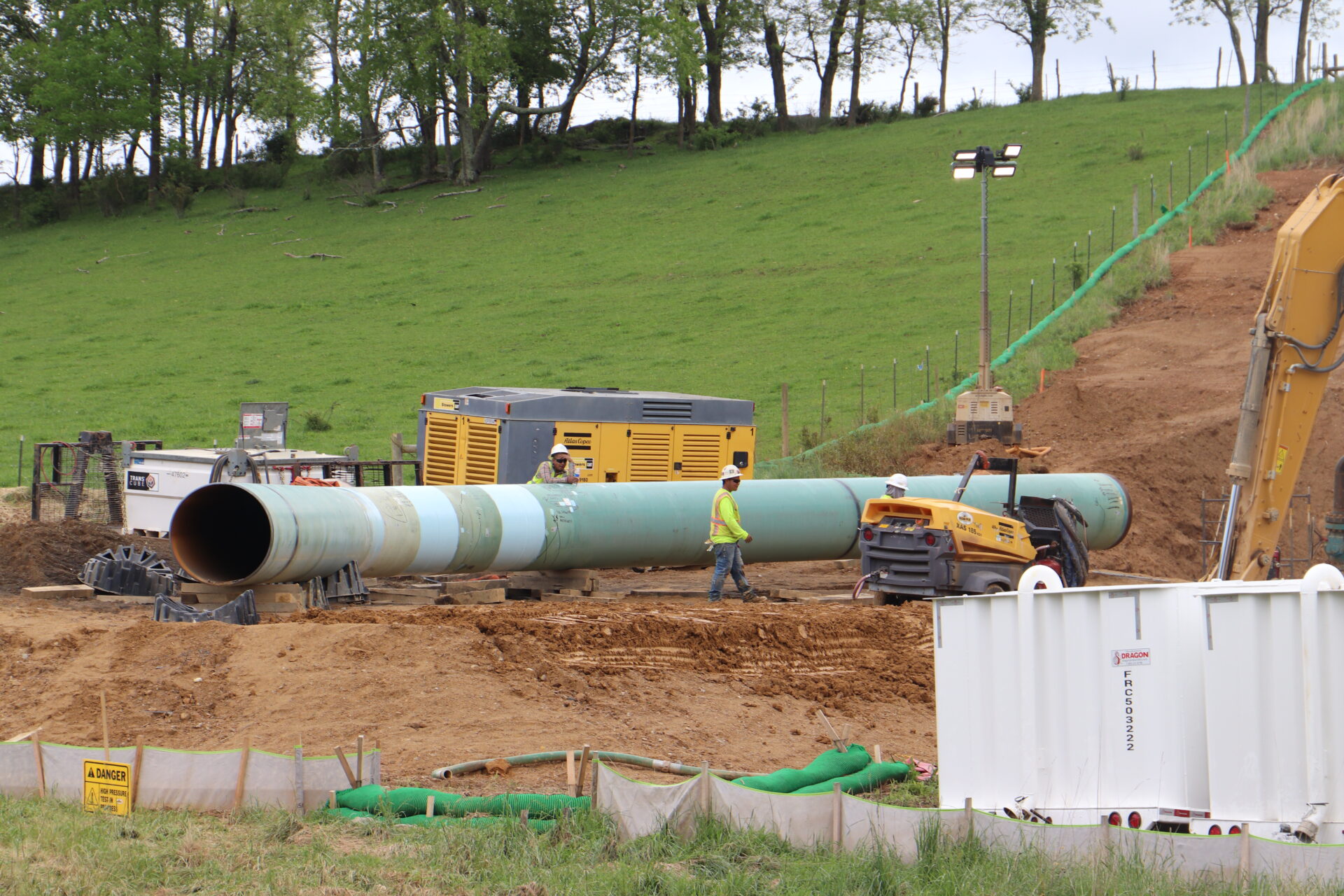The federal government gave the Mountain Valley Pipeline permission to begin service Tuesday despite lingering public concerns about the safety of the long-delayed project.
The Federal Energy Commission’s Office of Energy Projects gave its approval late Tuesday, only a day after the pipeline’s builder, Equitrans Midstream, declared the project “mechanically complete.”
Terry Turpin, the director of the Office of Energy Projects, told Equitrans that the 303-mile natural gas pipeline was in compliance with environmental and safety requirements.
Turpin cited recent construction status reports, agency compliance monitoring and a staff inspection conducted May 13-17.
He also cited communication with the Pipeline and Hazardous Materials Safety Administration, part of the U.S. Department of Transportation. Turpin indicated that the associate administrator for pipeline safety, Alan Mayberry, said in a phone call earlier Tuesday that his agency had no objections to FERC giving the pipeline its approval.
In contrast, dozens of comments opposing the authorization entered into the FERC public case docket in recent weeks.
Landowners, environmental groups, state lawmakers and county commissioners based their opposition, in part, on a May 1 rupture of the pipeline during pressure testing in Bent Mountain, Virginia.
Neither regulators nor Equitrans have disclosed the cause of the rupture or whether they will share the results of a metallurgical analysis.
The rupture released an unknown volume of municipal water and sediment into adjacent properties.
The pipeline is intended to move as much as 2 billion cubic feet of gas a day from West Virginia to Virginia.
The nearly $8 billion pipeline’s foes have been raising alarms about it for a decade since it was first proposed. The 42-inch-diameter pipe crosses hundreds of rivers and streams and encounters some of the most remote and rugged terrain in Appalachia.
They had been successful in challenging it in court until a year ago, when Congress enacted the Fiscal Responsibility Act. It approved all remaining permits the pipeline needed for completion.
Jessica Sims, Virginia field coordinator for Appalachian Voices, said regulators ignored the local concerns presented to them for years.
“Community members and environmental watchdogs have pointed out the flaws in this project for years, and these fundamental problems with the pipeline remain,” she said in a statement. “By allowing MVP to advance despite all these serious hazards, the system meant to protect our communities, land and water has failed.”
The pipeline’s supporters applauded the decision but criticized the delays to the project.
“MVP’s road to completion was marred by frivolous lawsuits and bureaucratic red tape that ultimately required an act of Congress to finalize,” said Charlie Burd, executive director of the Gas and Oil Association of West Virginia. “For the good of our country, policymakers must do everything in their power to ensure the permitting delays MVP faced don’t become the norm.”
